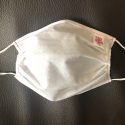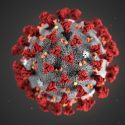UW–Madison watching for new variants of virus that causes COVID-19
Earlier this month, the Wisconsin Department of Health Services announced that state laboratories had identified for the first time in Wisconsin a variant of the virus that causes COVID-19 called B.1.1.7. The variant, which experts believe to be more contagious, was discovered in December in the United Kingdom after circulating there since September. It is one of a handful of known versions of the virus notable for mutations that may allow them to spread more rapidly and easily from person to person.
None of these variants have been identified yet in Madison or in the UW–Madison community, but they have drawn attention as a cluster of B.1.1.7 infections was recently discovered at the University of Michigan and a variant called P.1 known to be circulating in Brazil just appeared in Minnesota. Another variant that first was found in South Africa, called B.1.351, was also recently identified in South Carolina.
UW–Madison is working closely with federal, state and local public health agencies to watch and prepare for the arrival of these variants, and the university has close ties to laboratories conducting surveillance and genomic sequencing for these particular virus types.
The contact tracing process has been enhanced to catch potential variant cases. Positive test samples from people who have traveled internationally or who have been in close contact with international travelers are passed to laboratories equipped to sequence the viral DNA and identify the particular version of the virus involved. Viruses are constantly mutating, and UW–Madison labs have identified hundreds of variations of SARS-CoV-2 in Wisconsin cases — though the vast majority have not caused experts additional concern.
There is no evidence at this time that the B.1.1.7 variant causes more severe disease, or that vaccines approved for use against COVID-19 are any less effective against the B.1.1.7 variant. But a more contagious version of the virus calls for greater vigilance from people to protect themselves and others during the pandemic.
The best way to prevent the spread of variants like B.1.1.7, P.1 and B.1.351 is for everyone to put maximum effort toward following public health guidelines:
- Avoid in-person gatherings whenever possible.
- Keep at least 6 feet of distance from other people.
- Always wear a well-fitting face covering around people from outside your household and when on campus. For more on current campus face covering policies, visit: go.wisc.edu/fpm-face-coverings.
- Wash your hands frequently, and avoid touching your eyes, nose and mouth.
- Diligently follow isolation and quarantine guidance in the event of infection or exposure.
- Test regularly in accordance with expanded spring semester testing protocols.
- Watch for symptoms (fever or chills, cough, shortness of breath or difficulty breathing, fatigue and more) and report them to health care professionals if they arise.
- Get vaccinated when the vaccine is available to you and encourage others to do the same.
Watch for messages from campus and visit the university’s COVID-19 Response website (https://covidresponse.wisc.edu/) for the latest information on UW–Madison’s pandemic response. The Centers for Disease Control and Prevention has more information on virus variants.



